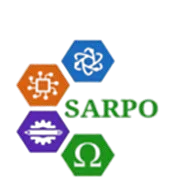FAQs
We are constantly adding most frequently asked question to this page.
Frequently Asked Questions (FAQs)
Sarpo is glad to share its knowledge and skills with clients and companies in need of testing services. Some questions we receive frequently, so we have posted answers below.
What does SARPO stand for?
SARPO stands for South Asian Research Publishing Organization. It is an academic platform focused on disseminating research across various disciplines, particularly in South Asia. The South Asian Research Publishing Organization (SARPO) is a dynamic platform dedicated to fostering academic excellence and promoting high-quality research within South Asia and beyond. SARPO’s activities focus on bridging the gap between researchers, policymakers, and practitioners by facilitating the dissemination of cutting-edge knowledge across diverse disciplines.
Why is the South Asian Research Publishing Organization only working in South Asia?
The South Asian Research Publishing Organization (SARPO) primarily focuses on South Asia due to several reasons related to its mission, vision, and scope:
a. Regional Focus:
- South Asia is a diverse and dynamic region with unique socio-economic, environmental, and scientific challenges. SARPO likely aims to address these challenges by promoting research that is directly relevant to the region.
b. Target Audience:
- By concentrating on South Asia, SARPO caters to researchers, academics, and professionals in this region, providing a platform to showcase local research on a global stage.
c. Resource Allocation:
- Managing resources and maintaining quality in publishing can be more effective when limited to a specific geographical area. Expanding beyond South Asia might dilute the focus and quality of services.
d. Promotion of Regional Collaboration:
- South Asia has immense potential for collaborative research among its countries. SARPO may aim to strengthen ties and cooperation among researchers in the region.
e. Niche Expertise:
- SARPO may have specialized knowledge about South Asian contexts, cultures, and scientific needs. This helps them provide tailored services to the regional academic and research community.
Could They Expand Globally?
While its primary focus is South Asia, SARPO could potentially expand its services to other regions in the future, depending on demand and resources. However, maintaining a regional identity can also be a strategic choice to stand out in the global publishing ecosystem.
What types of journals does SARPO publish?
SARPO publishes journals in diverse fields such as agriculture, forestry, environmental sciences, biological sciences, education, social sciences, and technology. It aims to promote scholarly research that has both regional and global significance.
Are SARPO journals peer-reviewed?
Yes, all SARPO journals follow a rigorous double-blind peer-review process to ensure the quality and integrity of the published research.
How can I submit a manuscript to SARPO journals?
Manuscripts can be submitted through SARPO’s official emails. Authors can submit their manuscripts through email.
What are the publication fees for SARPO journals?
SARPO follows an open-access model and charges a publication fee to cover the editorial and production costs. The fees may vary depending on the journal. Specific details about the publication fee can be found on the respective journal’s webpage.
Are SARPO journals indexed in major databases?
SARPO is continuously working to get its journals indexed in prominent international indexing services like Scopus and Web of Science.
How long does it take to review a manuscript?
The review process typically takes 4-8 weeks. However, the timeline may vary depending on the complexity of the research and the availability of reviewers.
Does SARPO provide a print version of its journals?
SARPO primarily focuses on open-access online publications. However, print versions may be available upon request, subject to additional fees.
Can I publish in SARPO journals if I am not based in South Asia?
Yes, SARPO journals welcome submissions from researchers worldwide. While the organization has a focus on South Asia, it encourages global collaboration and contributions.
What is SARPO’s policy on plagiarism?
SARPO maintains a strict policy against plagiarism. Manuscripts are screened using advanced plagiarism detection tools, and any paper found to have plagiarized content will be rejected.
Are SARPO journals open access?
Yes, SARPO journals are open access, ensuring that research articles are freely available to readers worldwide without any subscription fees.
How do I contact SARPO for inquiries?
For general inquiries, authors and readers can contact SARPO through their official email address or the “Contact Us” section on the SARPO website. Each journal also has a dedicated editorial office for specific queries.
Can students or early-career researchers publish in SARPO journals?
Absolutely! SARPO encourages submissions from students and early-career researchers. It provides guidance throughout the publication process and helps authors refine their work for publication.
What is SARPO’s stance on ethical publishing?
SARPO adheres to the highest standards of ethical publishing, following the guidelines of COPE (Committee on Publication Ethics). Authors, reviewers, and editors are expected to comply with these ethical standards.
Does SARPO offer discounts or waivers for publication fees?
SARPO provides fee waivers or discounts to authors from low-income countries or under certain circumstances, subject to approval by the editorial board.
Need Help?
Please feel free to contact us. We will get back to you with 1-2 business days.
Download
Any Questions For Sarpo Publication  Any Questions For Sarpo Publication
Any Questions For Sarpo Publication
Please fill form bellow
We are committed to providing excellent service and creating a stress-free experience for our customers.
